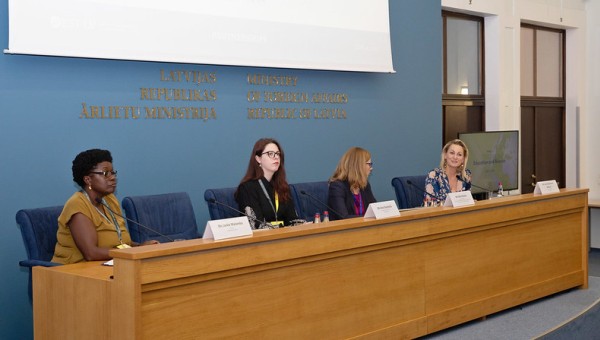Team over Idea: Management Professor Riccardo Maiolini
Professor Riccardo Maiolini is an expert on entrepreneurship and social innovation. His research interests focus on social innovation, social entrepreneurship and corporate entrepreneurship. Professor Maiolini participated in the organization of international startup programs, and was one of the promoters of the first startup barcamp at the New York Stock Exchange in 2014 (UsaCamp project). During the UsaCamp roadshow, he received an award from George Washington University and the “International Council for Small Business (ICSB)” for his dedication to fostering social innovation in Italy. At JCU, he teaches Strategic Decisions for Entrepreneurship, E-Marketing, Principles of Management, International Management.
What is the key to Social Innovation?
Social innovation is about new ways to put together social challenges and opportunities to help people design solutions that are more sustainable and cohesive by including all the stakeholders in co-production and proactive grassroots initiatives. One example is when communities use technologies to share info and data; think about the evolution of car sharing, place-making, welfare services and co-working spaces. Everything is based on community initiatives.
Another example is Pedius, an app for the deaf launched in Trastevere with the support of WCAP Telecom Italia. You write a text, then this text is translated into an electronic message and sent to the contact you choose, using an artificial voice or your own voice during the phone call.
Then there’s Ashoka, an international company, where I worked as a consultant. It provides help to social entrepreneurs through guidance and mentoring. It is the most famous network for social entrepreneurs, and its Italian branch is quite active.
Why should someone study entrepreneurship?
Entrepreneurship is not only a managerial practice to launch a new business; it is also a mindset. With entrepreneurship you do not need to be an entrepreneur. Studying entrepreneurship teaches you to acquire an innovative mindset, be open to risk taking and understand how to build possible alternative scenarios. An entrepreneurial mindset is fundamental to manage complex situations in a fast changing environment. Today companies launch products with a shorter and more complex life-cycle. We need to be more entrepreneurial and flexible. Markets are changing rapidly and we need to find alternative instruments, for example crowdsourcing or crowdfunding.
Business competition is tough today (proliferation of start-ups, social media boom, similarity of products/services/distribution etc.) What advice would you give to aspiring entrepreneurs today?
There is a myth about entrepreneurship, that you can become an entrepreneur on your own and right at the beginning of your career. If you take a look at successful stories of the most famous entrepreneurs, they did not start as independent business people. For instance, Sheryl Sandberg, COO of Facebook, worked for McKinsey & Company and Google, before joining Facebook. Accumulate the greatest number of experiences in order to absorb as much as possible.
Teamwork is just as crucial as experience. Bill Gates is often recognized as the “face” of Microsoft, but the company was not launched by him alone, there was a group of great minds involved. The “team over idea” concept is important, find the right people who can be complimentary to your profile, and together you can achieve much more than if you worked alone. Fail soon to succeed sooner and learn by doing. Just like Mark Zuckerberg, who encountered many obstacles before finding success.
With so many liberal arts colleges in the US, why should one choose JCU?
JCU brings “a team” together, where each member comes from a different cultural background. That is the new reality of a globalized world, where you meet people from all walks of life who share similar goals and values. At JCU we are developing many initiatives for aspiring entrepreneurs and we are sure that students can find many opportunities to study, observe, feel and try out entrepreneurship, such as for example, pitch competitions, learn-do-share programs (with real companies and startups), startup weekend, and workshops with professionals who share their experiences in class.
Can you comment on the situation surrounding Italian businesses today? Do you think they are capable of competing with other international companies that offer a larger amount of goods for a cheaper price?
The Italian business situation has two facets. On one hand, some businesses have become stagnant and cannot cope with a difficult economic situation and globalized competition. On the other hand, “Made in Italy” has become the country’s “brand” and is synonymous with high quality, exclusive products. Over the past few years, many Italian factories brought their production from countries like China back home. At the same time, there are international companies like Yves Saint Laurent that decided to move their leather production to Florence to positively affect their manufacturing process.






